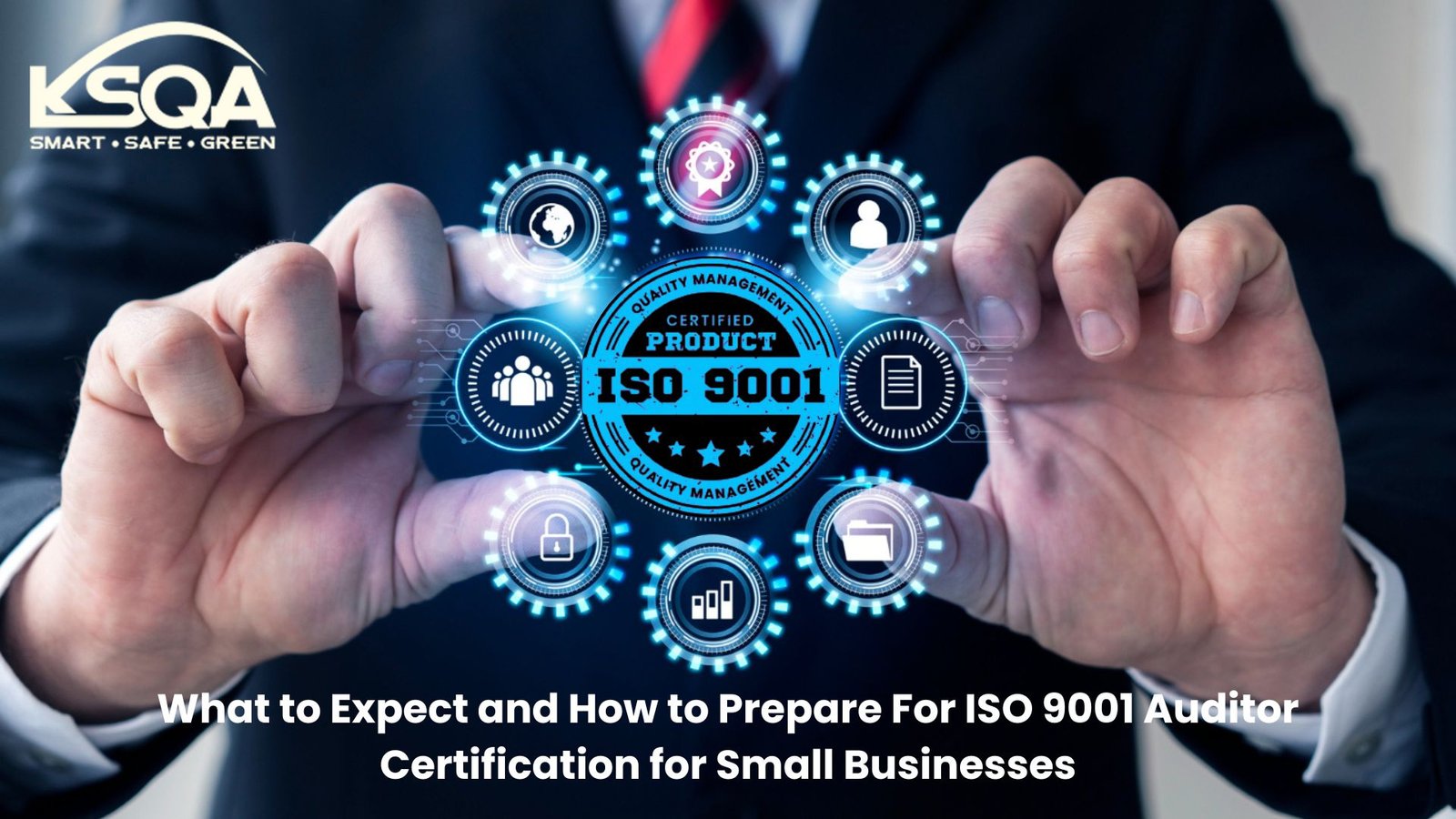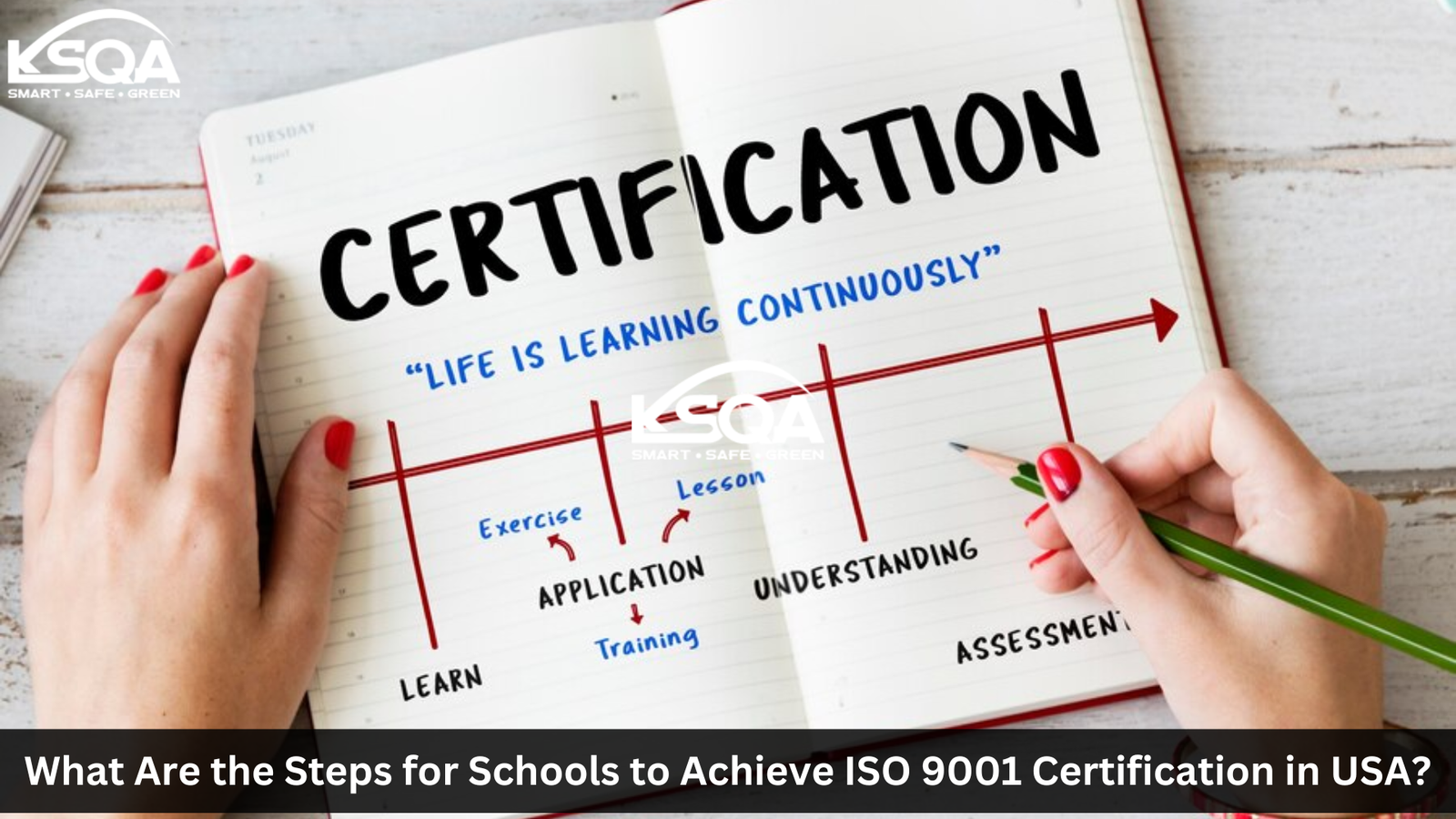The process of training to be an ISO 9001 auditor for small businesses is such that it becomes a big deal. It is especially important for organizations that want to certify themselves as quality assured in their industry and that are struggling for an edge. Getting an ISO 9001 auditor certification not only means you're an expert in the field of quality management systems, but also allows for the development of your business and its improvement.
In this blog, we will go deep into the critical steps and additionally unique costs to start with becoming certified as an ISO 9001 auditor, with emphasis placed on factors specifically meant for small businesses. From the certification process to budgeting, we are ready to not only meet your needs but to give you the expertise needed to master the plan perfectly.
How Does ISO 9001 Auditor Certification Help Small Businesses?
Here we have analyzed in detail how ISO 9001 auditor certification helps small businesses develop their quality assurance:
Ensures Compliance: The ISO auditors who are certified know how to examine a small business’s quality management system processes against the ISO criteria. This is an effective strategy for ensuring the business follows the regulations of the industry and the best trade practices.
Improves Quality: ISO auditor certification helps the auditors discover weaknesses in processes, procedures, and the quality management system of the business. They also help them improve their business.
Including these things, small enterprises will be able to improve their activity.
Enhances Credibility: The ISO audit group staff takes the ISO audit to the next level of credibility and reputation. It demonstrates to customers, partners, and stakeholders that the company meets high-quality standards, maintains consistent processes, and is continuously improving.
Facilitates Certification Process: The auditors who are ISO certified are professionals who have been trained on how to guide SME's on the journey to ISO certification. They can assist in conducting audits as a prerequisite for certifying the business, identify compliance inadequacies, and implement needed changes to achieve the certification.
Reduces Risks: ISO auditor certification makes auditors competent to point out risks and opportunities within the organization's key operational areas. Through the timely management of these threats, companies can reduce the risks of poor products, specific law rule violations, and other day-to-day problems.
How Can Small Businesses Get ISO 9001 Certification With Help of Auditors?
Small businesses can obtain ISO 9001 certification with the assistance of auditors through the following steps:
Initial Assessment: Commence the assessment by analyzing the operations, processes, procedures, and the present internal quality management system (QMS) of the enterprise from the perspective of the ISO 9001 standard. This will foster the identification of any gaps across the area that may require putting things in order.
Engage ISO 9001 Auditors: Select and hire qualified auditors or consultants with extensive experience in ISO 9001 certification to help you with the certification process. Whereas the assessors, who are experts, perform system testing and auditing and contribute to development certification and roadmaps.
Develop Quality Management System (QMS): Work together with your external auditors to develop and fully apply the Quality Management System (QMS), which corresponds with the ISO 9001 requirements. In this case, one can create procedures, document the activities fashioned, and recognize quality objectives as well as the metrics.
Training and Awareness: Trained and knowledgeable employees are the building blocks of any successful QMS; therefore, it is crucial to make sure that your employees are educated on their roles and responsibilities. There is an obvious two-fold advantage here. First, your auditors can provide live training on the ISO 9001 requirements and quality management principles. Second, your auditors can deliver training on techniques of internal auditing.
Internal Audits: Carry out an internal audit of your QMS so as to find out the degree of conformity with the requirements of ISO 9001 standard. Your auditors would help to focus on planning and conducting the audits and provide some guidance on what to do with the corrective actions as well.
Management Review: Introduce periodic management reviews during which to assess the operation of your QMS, and identify areas for improvement. They also make sure that it purposefully contributes to the success of business. It is auditor’s responsibility to make this process happen, and generate reports and recommendations for further changes.
Certification Audit Preparation: Before the certification audit, make sure that you provide the auditors with documentation, evidence that proves that you met the requirements. If internal tracks have shown you nonconformities, then provide corrective action for these nonconformities.
What Are Associated ISO Certification Cost For Small Business?
While getting and running an ISO certificate cost for small businesses, there are some factors that can influence the cost of this, such as business size, the complexity of its operations, and the organization that is chosen. Here are some common costs to consider:
Initial Certification Costs: This expenditure covers gap analysis operations, implementation of modifications to match the ISO management, and consultant hiring if required. The expenses may even include presenting training to staff on ISO requirements and executing procedures and instructions.
Certification Audit Fees: SMEs will just be paying accredited certification bodies a fee to do the audit with certification. Normally, the cost is determined by two factors: size and legal scope of the organization.
Consulting Fees: Small businesses may decide to hire consultants to walk them through the certification process: fill in the gap to identify what is needed to achieve certification, build up their own quality management system, and get ready for the audit. The fees, which are sometimes fluctuating, are determined by the amount of help needed.
Training Costs: Employees' training on ISO standards and quality management systems may elicit extra costs entailing course resources, invitation fees, and employees' time.
Documentation Costs: Implementation and preservation of documents necessary for ISO certification comprise subcategories like writing quality manuals, procedures, and records. Hence, there are the expenses incurred in achieving those through service procedures and storage.
Maintenance Costs: Once certified, small businesses are subject to these routinely conducted contact audits, surveillance audits, and recertification audits. Therefore, there are costs for auditors, staff time, and system improvement, and these proceedings occur due to book reviews.
Internal Audit Costs: Internal inspection to define and meet ISO requirements and discover areas for improvement can include training, tools, and manpower.
Conclusion
Getting the ISO9001 auditor certificate may be an important milestone for a small business that pursues the improvement of its quality management system. Moreover, a cost analysis of the certification also contributes to the preparation of the budget and the implementation of the certification campaign. By the aid of auditors, small businesses’ will manage to go through the process of certification accurately and reach their quality targets.
Embrace the ISO certification with an industry expert from KSQA to unleash the power of your small company! The subtlety of our experts is that they help small business organizations file their certifications and ensure compliance success for their sake. We strive to offer customization, cost-effectiveness, and convenience by means of assistance that could fit the needs of businesses regardless of their size. Contact our experts in order to get help!




.jpg)

